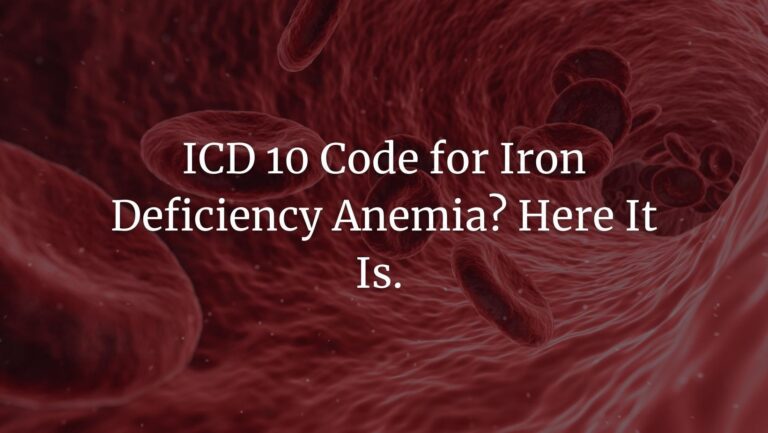Calcium Citrate and Vitamin D: A Super Duo for Osteoporosis
The world of supplements can seem as vast and complex as the deep sea. As you age, there emerge new supplements you can add to your regimen – and everyone seems to promote a brand new and groundbreaking thing.
But among the multitudes, calcium citrate and vitamin D emerge as the powerhouse duo essential for maintaining robust bone health. This is particularly crucial when it comes to osteoporosis, a condition that weakens bones and makes them more likely to break.
Let’s dive into the practical benefits of these two crucial nutrients and how to use them effectively in your daily regimen.
What the Research Says About Calcium Citrate and Vitamin D
Research indicates that taking at least 1200 mg of calcium and 800 IU of vitamin D every day is beneficial in both preventing and treating osteoporosis. Over time, this can help prevent hip fractures and other bone injuries common in older patients.
But, you do have to consistent with it.
Regularly taking these supplements is like maintaining a steady course on your health journey – consistency is key. Skipping doses or forgetting to take your supplements can make them less effective, just like straying from your path can make your journey longer and more difficult.
If you’re struggling with calcium supplement side effects, check out our article on stopping constipation from calcium supplements. It has helpful tips and tricks to avoid this common unpleasant effect of the pills.
If you’re already undergoing treatment for osteoporosis, these supplements still play a critical role. In fact, in all studies where osteoporosis treatment successfully reduced the risk of fractures, patients were also taking calcium and vitamin D supplements. These results underscore the supplements’ importance in reinforcing your body’s defenses against bone loss and fractures.
Disclaimer: This is not to say calcium citrate and vitamin D can replace osteoporosis treatment. It just goes to show how important they are as additional therapy.
Why These Supplements Help?
One of the answers might lie in vitamin D levels, which are often an issue for those living a more sedentary, indoors life – or living in places where sunlight is scarce.
Numerous women treated for osteoporosis in the US and Europe were found to have inadequate vitamin D levels. This finding reminds us to pay extra attention to our vitamin D intake, as it’s a crucial component for bone health.
But, it’s also about choosing the right calcium. The kind of calcium supplement you choose matters because different forms are absorbed differently by your body. This is why most of the research focuses on calcium citrate and vitamin D – the citrate form is more readily absorbed when fasting than other forms, such as calcium lactogluconate and calcium carbonate.
How to Take Calcium Citrate and Vitamin D?
If you decide to take calcium citrate for your bone health, try to take it between meals.
Not only does this improve absorption, but it also helps prevent abdominal bloating and gas, making your supplement routine more comfortable. Plus, it reduces the risk of kidney stone formation, which is an added benefit of this particular supplement regimen.
Final Thoughts
Looking to prevent or treat osteoporosis? Calcium citrate and vitamin D should be at the helm of your strategy.
Remember, stick to your daily supplement routine as consistently as possible, and don’t be afraid to ask your healthcare provider if you have questions or concerns about your regimen. Supplementing your health journey with the right nutrients can make your voyage towards better bone health a smooth sail.
References
- Quesada Gómez JM, Blanch Rubió J, Díaz Curiel M, Díez Pérez A. Calcium citrate and vitamin D in the treatment of osteoporosis. Clin Drug Investig. 2011;31(5):285-98. doi: 10.1007/BF03256927. PMID: 21405146.
- Palermo A, Naciu AM, Tabacco G, Manfrini S, Trimboli P, Vescini F, Falchetti A. Calcium citrate: from biochemistry and physiology to clinical applications. Rev Endocr Metab Disord. 2019 Sep;20(3):353-364. doi: 10.1007/s11154-019-09520-0. PMID: 31643038.
- De Martinis M, Allegra A, Sirufo MM, Tonacci A, Pioggia G, Raggiunti M, Ginaldi L, Gangemi S. Vitamin D Deficiency, Osteoporosis and Effect on Autoimmune Diseases and Hematopoiesis: A Review. Int J Mol Sci. 2021 Aug 17;22(16):8855. doi: 10.3390/ijms22168855. PMID: 34445560; PMCID: PMC8396272.
- Bischoff-Ferrari H.A., Willett W.C., Wong J.B., Stuck A.E., Staehelin H.B., Orav E.J., Thoma A., Kiel D.P., Henschkowski J. Prevention of nonvertebral fractures with oral vitamin D and dose dependency: A meta-analysis of randomized controlled trials. Arch. Intern. Med. 2009;169:551–561. doi: 10.1001/archinternmed.2008.600







